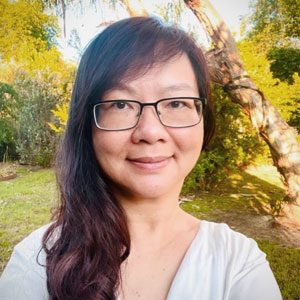Let Go can be translated into Chinese as “放手” (fangshou). This phrase literally means to release the grip on something. It is to relinquish control over something, someone, or a situation and let them be. It carries a sense of releasing negative emotions, past hurt, and anxious thoughts.
Let Go can be a painful process that requires time to walk through, from confusion to clarity, from struggles to freedom. The “through” experience can be short-lived or life-long. It involves suffering and death to self, as one lets go of things held dear and treasured in the heart. It requires courage, strength, and faith that is given by God and actively participated in by us. It is a path of total surrender and leaning on God, relinquishing oneself, and growing closer in our understanding of who God is.
Let Go is to ultimately “let God;” becoming vulnerable and humble. It is the wrestling encounter Jacob had at the ford of the Jabbok (Genesis 32: 22-32); Jesus’s agony on the Mount of Olives (Luke 22:39-46) or at Gethsemane (Matthew 26:36-45; Mark 14: 32-42) to the point of a “bloody sweat,” and his cry of dereliction over the abandonment of God on the cross (Matthew 27:46; Mark 15:34).
By naming or giving shape to things that we need to let go of—pain, disappointment, offense, trauma, broken dreams, or unhealthy relationships, we are able to make decisions to detach ourselves from them, creating space for healing, forgiveness, growth, and freedom. By letting go of our attachment to expectations of people or desired outcomes, we open new horizons of grief, relief, mystery, and transformation.
The practice of letting go has been adapted by spiritual leaders over the centuries, from François Fénelon’s spiritual letter to Thomas Keating’s welcoming prayer. Chinese Daoist tradition believes in an effortless action where letting go takes place without striving, the so-called notion of “无为” (wuwei). In this way, Zhuangzi, the Chinese philosopher who lived around the fourth century BC, holds that one can reach “逍游” (xiaoyou)—a state of wandering endlessly without the constraints of the world. For Christians, it is through the process of human struggles and wrestling through Christ that we can achieve the kind of freedom that gives us life and life to the full (John 10:10). The state of shalom is articulated in the prayer of St. Teresa of Avila:
Let nothing disturb you,
Let nothing frighten you,
All things are passing away:
God never changes.
Patience obtains all things
Whoever has God lacks nothing;
God alone suffices.
The poem “Let Go,” written nearly 20 years ago, is an invitation to let go of our regrets, hurts, and irritations. It focuses on human relationships and the need for forgiveness and grace. It has been used in leadership training and spiritual retreats over the years. It also applies to other areas of life. In times of transition in ministry and changes of season, what are the things that we still hold tight in our hands? How about trying to open our palms as a gesture of letting go of whatever might hinder us? What does it look or feel like to let them go? What are the new gifts we are receiving here and now as we step into the new year?
Let Go
Let go
the faces of anger
Let go
the eyes of suspicion
Let go
the words of criticism
Let go
the fingers of accusation
Let go the misses –
miscommunication
misunderstanding
misinterpretation
misconception
misperception
mishandling
misjudgment
Let go of the right
to explain
to clarify
to defend
to respond
Let go of the need
to be heard
to be comforted
to be affirmed
to be encouraged
Let them go
that scene
that picture
that clip
that page
that chapter
that segment
Let the granules of sand
irritating your skin
be released from your hands
Rub off the rest
Then open your palms
receive the fresh water
of grace from above
be cleansed completely
and start the next journey
a
n
e
w
放下
放下
生气的面孔
放下
怀疑的眼神
放下
批评的话语
放下
控诉的指头
放下 错误
错误的交流
错误的领会
错误的解释
错误的概念
错误的领悟
错误的处理
错误的判断
放下权利
去解释
去澄清
去辩护
去回应
放下需要
被聆听
被安慰
被肯定
被鼓励
放下
那个情景
那张图画
那个片断
那页纸
那一章
那一节
让刺着你皮肤的沙粒
从你的手中被释放
擦掉剩余的残渣
然后张开你的手掌
领受从上来的恩典的清泉
被完全地洁净
并开始下个旅程
全
然
一
新
Watch a video production of “Let Go” on YouTube.
©Xiaoli Yang. All rights reserved.
Image credit: Mohamed Nohassi via UnSplash.

Xiaoli Yang
Rev. Dr. Xiaoli Yang is an Australian Chinese theologian, pastor, poet, and spiritual director. She is currently serving Australian Association of Mission Studies and on the editorial board of Australian Journal of Mission Studies. View Full Bio
Are you enjoying a cup of good coffee or fragrant tea while reading the latest ChinaSource post? Consider donating the cost of that “cuppa” to support our content so we can continue to serve you with the latest on Christianity in China.